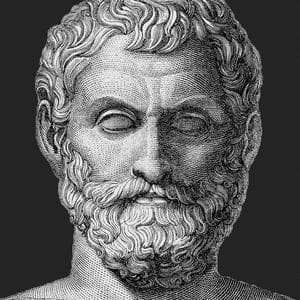Thomas Kuhn tipo di personalità MBTI
Personalità
"Che tipo di personalità è Thomas Kuhn? Thomas Kuhn è un tipo di personalità INTP in mbti, 5w6 - so/sp - 514 in enneagram, RCOEI in big 5, ILI in socionics."
Biografia
Thomas Samuel Kuhn ( July 18, 1922 – June 17, 1996) was an American philosopher of science whose 1962 book The Structure of Scientific Revolutions was influential in both academic and popular circles, introducing the term paradigm shift, which has since become an English-language idiom.
Personalità correlate

Friedrich Nietzsche

Socrates

Arthur Schopenhauer

Karl Marx

Albert Camus

Immanuel Kant

Niccolò Machiavelli

Diogenes








